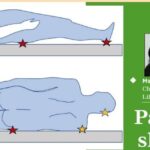

In the categories of taboo, perhaps the most mistreated ones are the ignored ones. Even the most vilified are dignified with having their existence recognized. As the adage notes, “It is better to be hated than ignored”, to be ignored, and thus deemed inconsequential, does far more damage than simply being hated. Incontinence, a.k.a, loss of bowel control, is one such taboo that doesn’t receive the infamy that is due.
Most taboos are thought to be useful, namely in two ways. One, that it unites the sections of one clan; and two, it helps avoiding certain behaviours and practices that are unhygienic or to the detriment of the clan. A great modern-day example is “washing hands after using the bathroom,” not to do so, is simply unacceptable. However, taboos are notorious for not keeping up with our accelerating times. The modern era is forcing such conversations, and it’s best if we evolve with the times.
The taboos around cleanliness are numerous, and this is why incontinence is also tough to resolve. According to the Moral Foundations Theory, sanctity or purity, is one of six foundational morals, existing across all humans. That is, our need as humans to remain clean and in clean surroundings is a basic foundation on which the mind works. Incontinence goes against this very core moral and is thus harder to address as compared to hair-loss, another taboo subject.
Furthermore, one of our core developmental milestones is the ability to control our own bowel. It is the time a baby transitions into a child; when we feel that someone is in charge of their faculties and behaviour. To lose this control in old age deeply impacts anyone. It is a regressive step, and one that completely hamstrings a person’s ability to travel. Furthermore, due to it being a taboo, soiling oneself as an adult leads to a steep drop in self-esteem coupled with societal embarrassment.
Resultantly, incontinence leads to a radical change in the sufferer’s behaviour. They stop interacting and reduce their locus of movement. The lack of understanding and societal pressure leads to the onset of depression and the breaking of nightly sleep cycles. Both of these issues have a downwards-spiralling effect, namely, the sufferer gets stuck in a descending loop, each condition feeding into the other creating compounding damage. Additionally, most sufferers are vehemently opposed to wearing diapers, as they see it as a concession to their impediment. No one wishes to confront the loss of control; especially when it concerns one’s body’s core functioning. So, the issue remains masked. Whether it is a “frequent urination” problem, or “diabetes-wala” issue, or a “small-bladder” issue; people make-up myriad supporting reasons to justify their control or lack of control over their bladder, insisting till the end that they do not need diapers.
There is another damaged party in this affair; i.e: the entire family unit. Due to the descent of the sufferer’s condition, the entire family is usually affected. Moreover, the caretaker of the sufferer gets shackled into the same existence, with reduced mobility as the sufferer continues to increase their dependency on the caregiver, as their physical condition continues to deteriorate. Plus, as the issue is one of purity, the family’s endurance in the matter is quite limited. Anything is acquiesced to, to keep the house clean and humane; anything apart from adult-diapers.


Wrinkle-removing creams are not even an essential product, but are a multi-million dollar industry as our population deals with living longer and healthier. Tools now exist to ease our existence; unfortunately, diapers are not accorded the same respect.
So, how can we change things? As with all taboos, an honest discussion is the first and only prescription. There are numerous studies (National Institute on Aging (NIA) showing the prevalence of falls in the elderly, especially as they rush to the bathroom. An adult diaper should be viewed as an insurance, something to prevent accidents and to exert control into an individual’s life. Most adult-diaper adoption happens when the family or caregivers push the sufferers into using the product. The first few days are the hardest. You will face strong resistance at diaper number 3, the 3’rd day of usage and the 3’rd week of usage. Guard against them, and keep on going through. The freedom and vitality that awaits on the other side is unimaginable.
The least we can strive for, for all such taboo subjects, is to alleviate the pressure and damage extended onto the community that is disadvantaged. At the very least, there are tools available to solve for these issues, a crutch that is not extended to other taboo subjects.
I personally look forward to the day that an ailing bladder doesn’t stop someone’s life in their tracks. Taboos have helped humanity survive so far; but as husks must be shed, so must certain taboos be dropped by the wayside. There exists no room in the world for shackling someone, simply due to the vagaries of life. The silver population deserves this simple courtesy from all of us. And we start by giving it a name and acknowledging its presence.


Kartik Johari –Vice President
Nobel Hygiene, Mumbai











